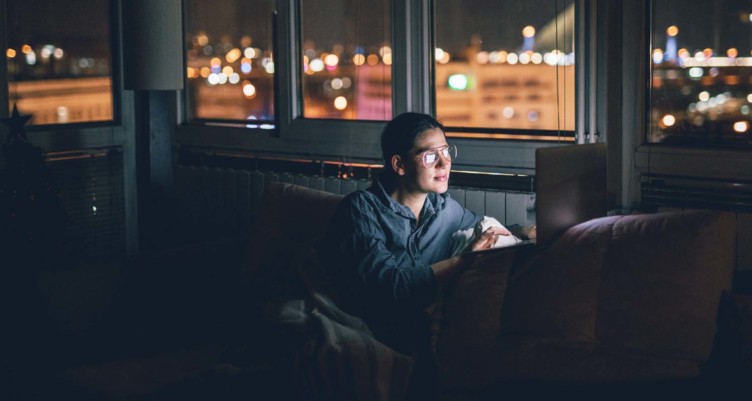Night Owl Behavior Leads to Higher Risk of Dying Sooner, Says Study

Do early birds really have an edge on night owls? A new study from Northwestern Medicine and the University of Surrey[1] found that people who stay up late and sleep in are at an increased risk of premature death than people who go to bed early and rise with the sun.
Night owls have 10 percent higher risk of premature death
The study, which looked at more than 400,000 people, found that self-described night owls are 10 percent more likely to die sooner than early birds in the 6 and a half year period sampled.
Night owls also have a higher rate of diabetes as well as psychological and neurological disorders, including depression and anxiety, according to the study.
The findings add to a growing body of research that suggests being a night owl has negative health consequences.[2]
Researchers blame socially-constructed routines and work schedules that are often at odds with an individual’s own internal clock.
“This is a public health issue that can no longer be ignored,” says study co-author Malcolm von Schantz, professor of chronobiology at the University of Surrey. “We should discuss allowing evening types to start and finish work later, where practical.”
Your biological clock versus the external environment
“It could be that people who are up late have an internal biological clock that doesn’t match their external environment,” says co-lead study author Kristen Knutson, associate professor of neurology at Northwestern University Feinberg School of Medicine. “It could be psychological stress, eating at the wrong time for their body, not exercising enough, not sleeping enough, being awake at night by yourself, maybe drug or alcohol use. There are a whole variety of unhealthy behaviors related to being up late in the dark by yourself.”
Even if you are a night owl, you’re not doomed. Kunston said that a person’s circadian rhythm personality, or sleep chronotype, is nearly 50 percent genetic and 50 percent environmentally-determined. You can control the environmental variables of your sleep chronotype to set yourself up for greater productivity, success, and improved health.
Basic steps to get to know your sleep chronotype
The first step is to determine your particular sleep chronotype. This test classifies you as one of four animals — bear, lion, wolf, and dolphin – based on your morning and evening preferences. (Night owls are known as wolves by this methodology). To learn more about the sleep chronotype test, listen to this Bulletproof Radio (iTunes) podcast episode with Michael Breus, M.D., author of “The Power of When,” a biohacking book that helps you to know the perfect time to do everything, based on your biological chronotype, including sleep.
“Many people may not have heard the term chronotype before, but they probably all heard of the idea of an early bird or a night owl,” said Breus. “Those are actually chronotypes. What I decided to do was look at [how] could your chronotype affect, not just when you wanted to sleep, but literally everything else that’s going on in your day?”
You can then start to restructure your day based on your unique brain waves. You can figure out the best times for maximum productivity and decision-making. The goal is to work with your inherent nature, not against it. You can begin to analyze yourself and pay attention to how you feel as you structure your day differently. Notice any changes in your general health and productivity and keep records of the changes.
Next steps for night owls
While you may not be able to adjust your work schedule to accommodate those late nights, there are steps you can take to honor your nocturnal tendencies and still keep up during the day.
The study’s researchers suggest becoming more attuned to the morning by exposing yourself to light upon waking. Brighter light, especially sunlight, is best because it emits the full spectrum of light. For those in the Northern Hemisphere (especially in the winter), exposure to a normal white light, like a 500-watt halogen bulb, will help. Aim for 20 minutes upon rising.
Limit the amount of light you expose yourself to at night, particularly the blue light from computers and electronics. Blue light has been shown to suppress melatonin production which interferes with sleep.[3] Stick to a regular bedtime (on weekends as well), so that you establish a rhythm too.
Related: How to Hack Your Sleep: The Art and Science of Sleeping
Sign up for early access to sales, product launches, the latest Bulletproof news and more!



